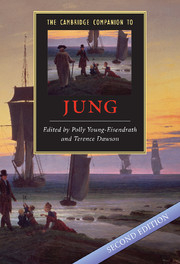Book contents
- Frontmatter
- New developments in the post-Jungian field
- Part I Jung’s Ideas and their Context
- Part II Analytical Psychology in Practice
- 5 The classical Jungian school
- 6 The archetypal school
- 7 The developmental school
- 8 Transference and countertransference
- 9 Me and my anima: through the dark glass of the Jungian/Freudian interface
- 10 The case of Joan: classical, archetypal, and developmental approaches
- Part III Analytical Psychology in Society
- Index
10 - The case of Joan: classical, archetypal, and developmental approaches
from Part II - Analytical Psychology in Practice
Published online by Cambridge University Press: 28 June 2008
- Frontmatter
- New developments in the post-Jungian field
- Part I Jung’s Ideas and their Context
- Part II Analytical Psychology in Practice
- 5 The classical Jungian school
- 6 The archetypal school
- 7 The developmental school
- 8 Transference and countertransference
- 9 Me and my anima: through the dark glass of the Jungian/Freudian interface
- 10 The case of Joan: classical, archetypal, and developmental approaches
- Part III Analytical Psychology in Society
- Index
Summary
In the following pages, three experienced and accomplished Jungian analysts comment on where they would focus, what they would do, and what they imagine to be the course of treatment for “Joan.” Joan is a pseudonym for a patient whose printed case material each analyst received and read closely before writing a response. Each received the same case report, summarized from the actual records of a forty-four-year-old female patient at the Renfrew Center for Eating Disorders, a private hospital in the Philadelphia area. Renfrew generously made available this material, which had previously been used in the public domain at a national conference on eating disorders. Each analyst was asked to see things primarily from the perspective of her or his “school,” each one being a prominent representative of that approach. Dr. Beebe writes from the classical approach, Dr. McNeely from the archetypal, and Dr. Gordon from the developmental. The analysts did not consult with each other on the case. As you read their responses, you may note how they highlight the model sketched out by Andrew Samuels in the Chapter 1 in which he weighs the importance of the archetype, Self, and the development of personality as well as the clinical issues of the transferential field, symbolic experience of Self, and the phenomenology of imagery for each of the Jungian schools. What he has sketched as an interpretive model for the three schools of analytical psychology (see chapter 1, pp. 8-11) works very well in understanding the interpretations of these authors.
- Type
- Chapter
- Information
- The Cambridge Companion to Jung , pp. 199 - 232Publisher: Cambridge University PressPrint publication year: 2008



